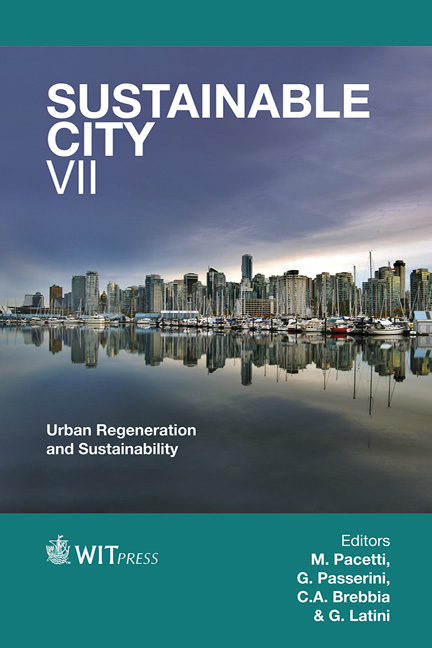Air Pollution And Port Operations: A Case Study And Strategies To Clean Up
Price
Free (open access)
Transaction
Volume
155
Pages
13
Page Range
391 - 403
Published
2012
Size
428 kb
Paper DOI
10.2495/SC120331
Copyright
WIT Press
Author(s)
S. Carletti, G. Latini & G. Passerini
Abstract
As in almost all the major maritime cities, Ancona harbour is very close to the urban area and hosts a multi-purpose port receiving cruise boats, passenger ferries, commercial liners, and fishing boats. A consistent part of the related airborne pollutants is due to the vessels stationing while the main contribution comes from the consequent road traffic and other anthropic activities. To reduce air pollution without penalizing local economy, understanding and quantifying the very true sources of pollution has become a major concern. Here we present a set of studies we carried out to understand the respective weight of pollutant sources. The results are a complete airborne pollutant emission inventory for Ancona city, province and harbour and the related assessment for pollutant concentration and deposition within the area. The study pointed out that most of fine particulate-matter emissions (PM10) in the harbour, namely up to 70 percent, arises from ship \“hotelling” i.e. ship operations during the stop within the port area. Therefore, solutions to reduce the emission of pollutants from diesel engines for ships, mainly by providing alternative sources of energy during the hotelling, shall be found. A significant reduction of pollutants can be achieved by applying a ground electrification of the docks in order to provide the electricity usually produced by the polluting engines of the ships. Keywords: ship hotelling emissions, PM10, urban air pollution, cold ironing. 1 Introduction PM10 (Particulate Matter smaller than 10 microns in diameter) is the term used for a potentially toxic mixture of solid particles and liquid droplets suspended in the air. The EU daily mean limit value set for the protection of human health is
Keywords
ship hotelling emissions, PM10, urban air pollution, cold ironing.





